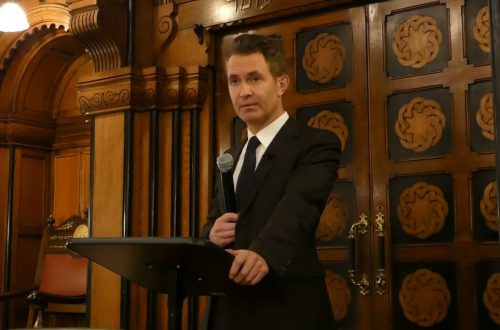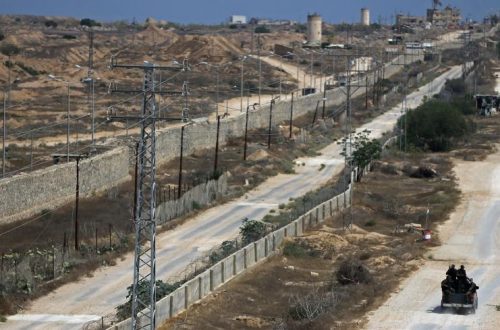This post, by Nick D, is a cross-post from falsedichotomies.com
Even by the abysmal standards of pro-Palestinian advocacy, and I write this as a strong supporter of the Palestinians’ right to statehood, Deborah Orr’s article (“Is an Israeli life really worth more than a Palestinian’s?”) was breathtakingly stupid, as well as deeply unpleasant in its trivialisation of a serious issue and empty show of moral concern. It was, however, emblematic of a certain style of ostensibly pro-Palestinian politics, one concerned much more with image than substance, with glib rhetoric over logical argument, with a facile and easily digestible morality that presents a straightforward picture of victim and villain. The first task of those who consider themselves friends and allies of the Palestinians should be to rid the movement for justice of its false friends, and Orr is a prime example of the commentator who lazily piggybacks her way to a cheap point on the suffering of a region. The incoherence of her argument should be the first signal that she really doesn‘t care – that her whole article is a wolf-whistle to the prejudices of her readership rather than an attempt to make a serious comment. She begins by asserting that it is widely held that the exchange of Shalit for over 1000 Palestinian prisoners amounts to a victory for Hamas, and that the deal has also made Netanyahu look weak. Orr then follows this by suggesting that this means the world has become “inured to the obscene idea that Israeli lives are more important than Palestinian”. This is absurd. If the world had indeed accepted the idea, would you not expect the media reaction to be the reverse – to acknowledge that both sides had received a fair deal, that 1000 Palestinians are indeed equivalent to one Israeli? To acknowledge that Hamas has had the better of this bargain doesn’t at all imply the kind of calculus Orr claims it does, without any appeal to logic.
The exact meaning of the exchange is, of course, more complicated. We are not describing a situation where Israel (or the world) has decided that it is worth killing 1000 Palestinians to free Shalit. In this case, outcry would, of course be legitimate, because it would illustrate the principle Orr wrongly says is being affirmed by the current deal. In this case, the weighing of relative importance of Israel and Palestinian lives would be very straightforward: a thousand are deprived of life so that one man can enjoy it. The sides of the equation deal with the same property: capacity for life. There would be no equality. 1 = 1000. In the current, non-abstract, situation what has been bargained over is very different. Political calculations enter the picture. The Israelis sought not only to free Shalit from captivity but to strengthen an important component of the Israeli national myth: that no man will be left behind. There was a strong domestic campaign in favour of a prisoner exchange. Despite the legal challenges and existence of dissent, polls reveal broad support in Israeli society for the deal. It meant sacrificing certain values – justice, the protection of citizens – for Shalit’s freedom and the principle this would illustrate. Palestinian leaders, given the overwhelming imbalance of power, and the relative difficulty of accomplishing what the Israelis can easily do every day, that is, the seizure and imprisonment of their neighbours, were reluctant to cash in on Shalit’s captivity without securing the maximum price for it, and the reaction of crowds in Gaza and elsewhere, presumably full of people who do believe (at a minimum) that Palestinian lives are worth those of Israelis, suggest the deal was seen as a huge success. Orr concedes that “the Palestinians don’t have much to bargain with” without seeming to see the relevance of this for her thesis. And undoubtedly Netanyahu would have been happy to do a swap 1 for 1; establishing the relative value of Palestinians and Israelis was hardly his motivating concern.
So much, then, for equivalence. There is also something disturbing about the willingness of the article to make a spurious point like this rather than raise any number of other issues connected to the exchange and efforts to build a better future. For instance, the numbers of Palestinians still imprisoned in Israeli jails; individual case histories which show obvious patterns of injustice. Orr might have focussed on evidence of the relative treatment of prisoners, and on the accuracy of impressions noted by the media, such as the claim, based on photographs of Palestinians returning to the West Bank and Gaza that they were well-treated and well-fed: does this have any validity? What do human rights monitors have to say about Israel’s incarceration procedures – and those of Hamas? She might also have something to say about the astonishing generosity of Shalit in his post-captivity interview towards those he’d have every right to regard as his eternal foes, the presence of Hamas thugs in the background duly noted. Or the calls among Gazans for more “Gilad Shalits”. Or she might have said something about the notion that Israel cares deeply for all its citizens by examining internal discrimination and racism against Israeli-Arabs. Instead, Orr, like many others, is content simply to wave the flag of Israeli wrongdoing and wait for the acolytes to come flocking. She insults those who genuinely care about the region and its people.


